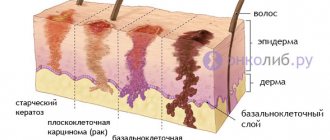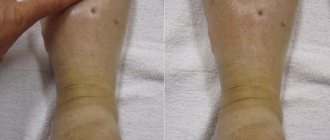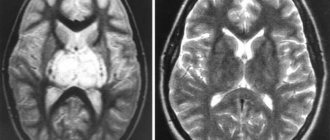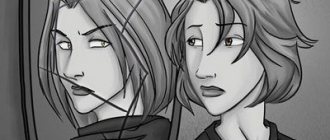Emotional disorders are classified as psychiatric pathologies. Most often, they are difficult to diagnose, since in some cases a person may be quite adequate. The most common pathologies from this group are mood disorders. As you know, every person faces changes in their emotional background. Mood changes are especially common in women, which is associated with hormonal fluctuations in the body. However, there is a group of pathological conditions in which there is a violation of control over emotions. An example of such diseases is hypomanic psychosis. This condition does not occur in healthy people and requires specialist intervention.
General information
In a state of hypomania, a person is “ready to move mountains”; it seems that he is full of strength and energy. He gushes with ideas, makes plans, and develops vigorous activity. He feels great. Those around you are not overjoyed, especially your bosses at work. A person can perform large volumes of work, he has a surge of creative forces. Artists in this state produce masterpieces.
What's wrong with that? Such a “rise” lasts for several days, and is replaced by a loss of strength, nervous and physical exhaustion: a person tries to do something, to implement his many ideas, but is unable...
Everything begins to irritate him, the lack of understanding of those around him infuriates him even more, he becomes aggressive. A series of failures often leads to depression, and there may be suicide attempts.
Etiology and pathogenesis
The etiology and pathogenesis of the disease have not been sufficiently studied. Factors that provoke the development of the condition are the following:
- Great overload at work, life in constant time pressure force some people to “support themselves” with psychostimulants, stimulants and energy drinks, and even antidepressants;
- pathological and physiological hormonal imbalance - hyperthyroidism, postpartum period, menopause;
- drug intoxication;
- therapeutic fasting or anorexia;
- organic diseases and brain injuries in the acute stage.
Description of hypomanic psychosis
Hypomanic psychosis is a pathological condition belonging to the group of mood disorders. This syndrome is studied by the science of psychiatry. Despite the fact that such a disease does not belong to severe disorders (such as schizophrenia, autism), it must be treated. It is sometimes very difficult to identify pathology, since people suffering from such a disorder do not have sudden changes in mood. This makes this disease different from other emotional disorders. Among them are depression and mania. The main symptom of the pathology is the patient's high spirits. Naturally, this symptom often occurs in healthy people, so the disease is often not diagnosed, considering the condition normal. Therefore, it is important to be able to distinguish hypomanic psychosis from a good ordinary mood. This is the task of doctors, as well as the patient’s loved ones. Diagnosing this syndrome is also difficult because patients often consider themselves healthy. Therefore, people suffering from this disease require a special approach.
Clinical types of hypomania
There are pure and latent forms of hypomania.
Pure – classic hypomanic symptoms leading to aggression are clearly expressed:
- a person develops “violent activity”, devotes himself entirely to work, but cannot complete what he started, which is why he is constantly nervous and irritated;
- familiarity in communication, intrusiveness, verbosity, the desire to joke or give unnecessary advice. Having encountered misunderstanding and resistance, the patient becomes even more excited;
- inability to concentrate on something, the patient feels that everything is bothering him - bright light, loud speech, music, due to which he begins to sort things out with others;
- superficiality of judgment, frivolous actions, inability to adequately perceive constructive criticism addressed to oneself;
- reassessment of one's strengths and capabilities.
Hidden - the symptoms are the same as with pure, but there is no aggression. A person is constantly in high spirits, full of optimism, takes on everything at once, but does not get irritated and does not conflict with others.
Depending on the characteristics of the personality type, hypomania occurs:
- querulant - the patient actively “defends the rights” of himself and others, constantly writes complaints, goes to authorities, proves, accuses;
- dysphoric – angry irritable mood, hyperactivity gives way to aggression;
- adventuristic – a tendency to take risks;
- euphoric hypochondria - a person is constantly being examined, looking for “imaginary” diseases, having received negative results, does not believe, gets irritated, and starts looking again.
Based on the manifestation of affective symptoms, the disorder can occur in the form of cheerful or irritable (angry) hypomania.
Within the framework of cyclothymia, a productive type is distinguished, characterized by accelerated thinking, mild sleep disturbance, and slight distractibility.
With hypomania, a disinhibition of drives is possible, less pronounced than in a manic state: gluttony, increased libido, the inability to deny oneself pleasures, even if they are harmful to health or harm others - a craving for alcohol, drugs, gambling, wasteful shopping. The need for sleep decreases sharply.
Symptoms of hypomanic psychosis
As you know, it is very difficult to diagnose “hypomanic psychosis”. The symptoms of this pathology are often confused with a person's personality characteristics. The main signs of psychosis are:
- A good mood.
- Energy.
- Work ability.
- The desire to achieve your goals, even if there is no such opportunity.
- Interest in several things and projects at once.
- Characteristic speed of speech and timbre of voice. A person often breaks off one topic and starts another. This is due to the acceleration of the thought process.
- Expressive gestures.
It would seem that such symptoms do not mean anything bad. However, the development of hypomanic psychosis depletes the nervous system and harms the body as a whole. Due to their high working capacity, patients sleep little (3-4 hours a day) and lose body weight, despite a good appetite. If measures are not taken, more serious mental deviations, as well as somatic pathologies, may develop.
Diagnostics
According to the international classification of diseases ICD - 10, the diagnosis is established on the basis of abnormally elevated mood or irritability for 4 days and the presence of three or more of the following symptoms:
- excessive talkativeness;
- hyperactivity;
- distractibility;
- intrusiveness in communication and/or familiarity;
- reducing the need for sleep;
- frivolous behavior;
- increase libido.
To confirm the diagnosis, use the hypomania questionnaire HCL-32, or its abbreviated versions HCL-16, HCL-8.
Why is hypomania dangerous?
The consequences of the condition can be divided into physiological and social.
Physiological:
- chronic lack of sleep;
- loss of strength, sharp decrease in performance;
- nervous exhaustion;
- obesity due to overeating, leading to metabolic disorders and somatic diseases;
- sexually transmitted diseases caused by promiscuity due to increased libido.
Social. Reckless behavior - gambling, waste, hooliganism, petty theft - can lead to the loss of family, home, property, and sometimes imprisonment.
All of the above provokes the development of depression, in some cases ending in suicide.
Treatment of hypomanic psychosis: expert advice
Although mood disorders are not a serious mental illness, the diagnosis of hypomanic psychosis must be taken seriously. Treatment of this pathology is possible only if the patient accepts the problem. It takes a long time to get over psychosis. First of all, you need to make sure the diagnosis is accurate. Experienced doctors achieve this during the first conversations with the patient. Doctors in this field believe that the main method of achieving recovery is psychotherapy. For this purpose, it is not necessary to hospitalize the patient. In most cases, sessions with a psychologist are sufficient. The doctor must find out: what led to the development of psychosis, what problems the patient had in childhood. When a patient admits his illness, conversations with a psychologist often bring a positive effect.
Treatment
During the period of “great health”, people, as a rule, do not turn to specialists. If relatives notice a previously unusual increase in mood or hyperactivity, it is necessary to persuade the patient to visit a doctor. But usually the doctor is “visited” already while in the ambulance...
In case of serious complications - physical exhaustion, refusal to eat, deep depression, treatment takes place in a hospital, where the patient is given intravenous drip solutions of nutritious protein preparations and glucose. Restores the functioning of the cardiovascular, respiratory, and digestive systems. Activate the patient's vitality.
For symptoms of depression, antidepressants are prescribed, but it must be remembered that with an overdose, a relapse of hypomania is possible.
After recovery from the acute condition, therapy is continued at home. Treatment includes medications (mode stabilizers, sedatives, tranquilizers) and psychotherapy.
Diagnosis of hypomanic syndrome
People suffering from this disorder rarely seek medical help because they do not consider themselves sick. However, in severe cases they sometimes realize that they have a problem. Most often, relatives of patients seek help. Diagnosis of hypomanic syndrome consists of assessing the clinical picture and conducting various tests to determine the emotional background. During the examination, patients are observed for several days. During this time, their behavior, sleep, speech and thought processes are assessed. In some cases, with such a disease, there is increased sexual excitability, aggression, the inability to concentrate on one subject (topic), and high spirits that are inappropriate for the situation.
Psychotherapy
Psychotherapy is aimed at making the patient aware of the fact that a periodically occurring state of unprecedentedly elevated mood and thirst for vigorous activity is a pathology that requires treatment. The patient must understand that with proper treatment the condition can be completely relieved, but much depends on himself, the desire to get rid of hypomania and prevent the consequences.
The following types of psychotherapy are used:
- cognitive – the patient is informed about the causes, symptoms and consequences of hypomania, helped to accept his condition, and find ways out of it;
- interpersonal – the patient is taught skills of conflict-free communication with others, methods of increasing self-esteem;
- family – carried out with the patient and his household in order to create an atmosphere of mutual understanding and support in the family.
Forecast
The state of hypomania can last up to 2 months. An undetected primary episode can develop into manic psychosis.
Relapse of hypomania is already considered within the framework of bipolar affective disorder (BD). The alternation of hypomania and a severe depressive episode, according to DSM-IV, is classified as type II bipolar disorder. According to statistics, the frequency of repeated episodes of hypomania within bipolar disorder is 50% per year.
Prevention
To reduce the risk of developing a hypomanic state, you must adhere to the following recommendations:
- Try not to overload. Under unbearable physical and mental stress, time pressure at work and in everyday life, a person begins to uncontrollably use psychostimulants, tea, coffee, energy drinks (in order to have the strength to work “through I can’t”).
- Be able to say “no” to your boss, count on your strengths, respect yourself both at work and at home. At home, distribute responsibilities among family members, and not take everything upon yourself.
- Learn to relax, have fun, enjoy the little things. Find time for your favorite activities.
- Treat chronic diseases in a timely manner, undergo annual medical examinations with doctors of all profiles, and monitor your condition. If there is the slightest deviation from the norm, consult a specialist.
- Do not go on fad diets without consulting your doctor.
- Do not drink alcohol or drugs.
- Try to lead a healthy lifestyle - follow a routine, eat right, get enough sleep, do gymnastics, walk in the fresh air.
Prevention of relapses consists of strictly following all medical prescriptions, taking medications in a timely manner, without changing the dose or discontinuing medications on your own. Relatives and friends of the patient should create the most comfortable, calm environment at home and at work with the opportunity to relax, become his support and support.
Author of the article: Veits Alina Emilievna, psychiatrist, candidate of psychological sciences
Hypomanic state
Home»Articles»Hypomanic state
Published: November 2, 2012 at 07:49
This condition is accompanied by moderate symptoms typical of manic syndrome. The person is in an inadequately optimistic and joyful mood, he feels great and is ready to engage in active activities. Increased productivity is often observed. This disease is characterized by a course in manic and depressive forms, the peculiarity is that in the intermediate state this is a practically healthy person. In other words, when emerging from a hypomanic state, the patient has no change in personality characteristics, and psychopathological symptoms are completely absent. In addition, even taking into account multiple attacks, one can generally count on a favorable prognosis for the disease.
A patient in a hypomanic state can be especially productive. With hypomania, there is no disinhibition and increased distractibility. Patients do not complain about memory either; in a word, the individual is confident that he can move mountains. People related to creativity, for example, musicians, artists, while in a hypomanic state, are capable of creating real masterpieces in the field of art, inventing something brilliant. The peculiarity is that there is a very unsteady line separating states such as manic and hypomanic, and it is quite easy to cross this line. Further treatment is required, since the person is in a painful state. If the patient has a hypomanic state and subdepression, then in this case it can be argued that cyclothymia occurs.
However, it is known that a person in a hypomanic state usually does not go to the doctor, as he feels healthier than ever. At the same time, with subdepression, medical intervention is necessary, and at least outpatient care. While in a hypomanic state, patients in most cases are confident in their abilities and strive to apply for a number of positions that are completely unsuitable for them in terms of qualifications and level of education. Patients can also declare themselves talented poets and artists. Often they quit their jobs only because they intend to engage in creative activities.
Causes of hypomania
Experts often attribute this disease to endogenous psychosis. Among the causes, hereditary factors are primarily cited; the constitutional characteristics of the patient are important. Experts say that hypomania is the opposite side of depression, therefore, a certain connection can be traced between depression and a hypomanic state. Sometimes psychotherapists working with such patients may underestimate the degree of disorganization that lies behind the charm of the person's personality. Sometimes it happens that the doctor regards the behavior and condition of the patient as the Ego developing in a favorable direction. In reality, there is manic denial and charm of the so-called defensive type.
Therefore, it is important to make a very accurate diagnosis and identify the causes of the hypomanic state. The peculiarity is that, regardless of the cause of this disease, patients with hypomania have an excellent appetite. However, sometimes they tend to be thin because they constantly have a huge energy expenditure. Such people sleep little, and sometimes their sleep is limited to four hours a day. But even this time is enough for them to regain strength. They simply cannot afford to waste so much useful time on rest, otherwise, in their opinion, they can sleep all their lives. Having an increased sex drive, they often prefer to have promiscuous intimate relationships.
Often patients are characterized by false recognition, when they are haunted by the feeling of what they have already experienced and seen. This may be an illusion, a distorted memory, the reality and veracity of which the patient has absolutely no doubt about. Moreover, such illusions are always positive; a person hears pleasant, friendly laughter, music, and also has pleasant taste sensations. If such phenomena intensify too much, they turn into manic psychosis.
Treatment of hypomania
The treatment process when working with a hypomanic patient is very complex, and in this case, experts believe that the main thing is the ability to prevent interruption of the begun treatment course. Typically, the psychotherapist discusses the specifics of treatment with the patient at the first consultation. People in a hypomanic state are happy to be distracted by unrelated topics while at a doctor's appointment. They talk about their grandiose plans, and even emphasize that they are completely independent of concepts such as sleep or food. Also, the doctor often finds out that a hypomanic person cannot afford to “slow down”, so alcohol, and sometimes opiates and barbiturates, are often used to maintain strength and tone.
As clinical psychotherapeutic practice shows, hypomanic individuals often show criticism, they can resort to both emotional and physical violence. The origins of this behavior are found in deep childhood, long forgotten by a person, but leaving its mark. In most cases, there was a neglectful attitude of parents towards their emotional world. From this position, such a serious defense of the patient as a complete denial of certain actions he has committed becomes completely understandable.
If a person’s hypomanic state is not burdened by more serious psychological illnesses, then he always turns to a psychotherapist for help on his own, without waiting for his relatives or friends to advise him to do so. Patients begin to realize that their energy is decreasing, their drive is reduced, due to which such patients retrospectively see that it is time to get psychological help.












